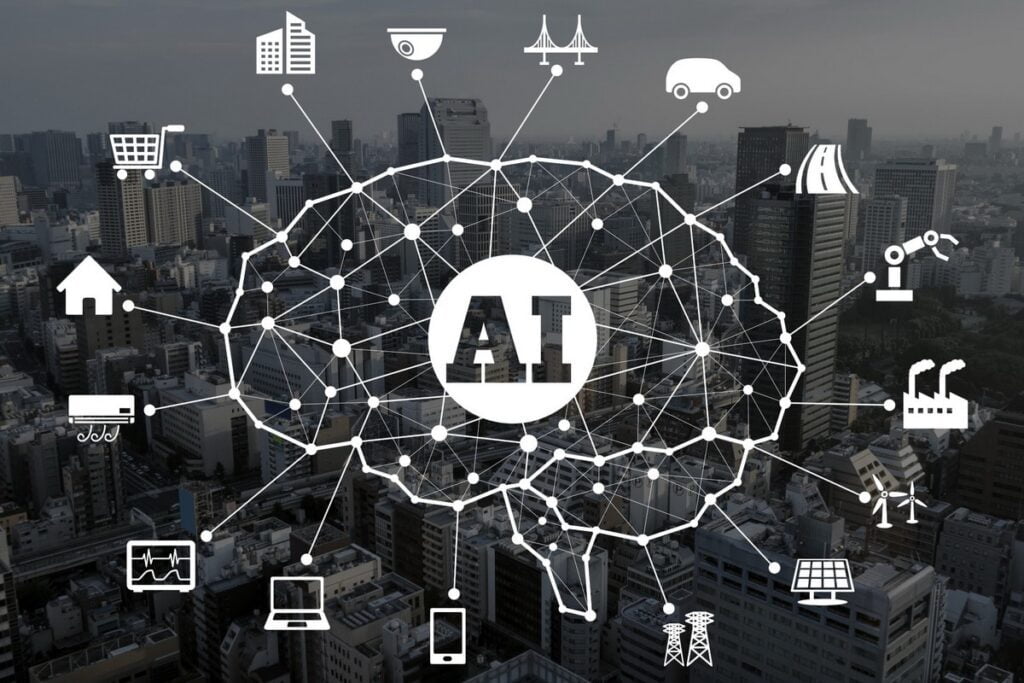AI technology, or artificial intelligence, sounds like something out of a sci-fi novel, but it’s become a real and integral part of our daily lives. But what exactly is AI? How does it function, and more importantly, how is it shaping our understanding of human evolution and cognitive strategies? Let’s break it down into simple, understandable pieces.
Introduction to AI
Have you ever asked Siri to set an alarm, or has Netflix suggested a series that fits just right with your taste? That’s artificial intelligence in action. At its core, AI technology refers to systems or machines that mimic human intelligence to perform tasks and can iteratively improve themselves based on the information they collect.
How Does AI Work?
Imagine teaching a toddler to recognize colors by showing them different objects; this is somewhat similar to how AI learns. Through processes like machine learning and deep learning, AI systems analyze vast amounts of data, learn patterns, and make decisions.
Types of AI
From the basic AI systems capable of handling single-task operations to advanced AI that can undertake complex decision-making scenarios, the spectrum of AI is vast and varied. Each type has its unique capabilities and limitations.
Applications of AI in Daily Life

AI isn’t just for tech giants; it’s part of our homes, offices, and even public spaces. Whether it’s smart assistants, facial recognition systems, or automated financial advisors, AI’s applications are widespread and growing.
AI in Business
Businesses leverage AI to streamline operations, enhance customer service, and make better strategic decisions. From logistics to HR and marketing, AI’s fingerprints are all over the corporate world.
AI and Ethics
As AI becomes more integrated into our lives, ethical concerns grow. Issues like privacy, surveillance, and decision-making biases are hot topics that need addressing to ensure AI benefits society as a whole.
The Future of AI
What lies ahead for AI? From self-driving cars to diagnostic robots in healthcare, the potential is enormous. However, navigating this future requires careful consideration of ethical, technical, and societal implications.
AI Myths Debunked
There are many myths surrounding AI, such as “AI can think like humans” or “AI will replace all jobs.” It’s essential to separate fact from fiction to understand AI’s real capabilities and limitations.
How to Start with AI?
Interested in AI but not sure where to begin? There are numerous resources, from online courses to workshops, that can help you get a foothold in this exciting field.
AI and Job Opportunities

AI is not just a job taker but a job creator. Careers in AI are among the fastest-growing in the tech sector, with roles ranging from engineers to ethical compliance officers.
Challenges in AI
Despite its potential, AI faces significant challenges, including data biases, high costs of implementation, and the ongoing need for human oversight.
The Role of Data in AI
Data is the lifeblood of AI. The quality, quantity, and diversity of data determine the effectiveness of AI solutions. Managing this data responsibly is paramount.
AI Innovations
Every year, new AI innovations push the boundaries of what’s possible. From language models that can write like humans to algorithms that predict climate patterns, AI’s potential to solve complex problems is unparalleled.
Learning AI
AI is a field of constant learning and adaptation. For those interested, the journey is as rewarding as it is essential to our future.
Conclusion
AI technology is reshaping our world, offering new opportunities and challenges. As we stand on the brink of this technological revolution, understanding AI is not just beneficial—it’s imperative.
FAQs
1. What is the simplest definition of AI?
Artificial Intelligence (AI) is the capability of a computer or a robot controlled by a computer to perform tasks that are usually done by humans because they require human intelligence and discernment.
2. How safe is AI technology?
AI technology is generally safe when designed, developed, and deployed with proper guidelines and ethical considerations. However, like any technology, its safety depends on the applications it’s used for, the controls in place, and the potential for misuse. Ongoing research and regulation are crucial to addressing these safety concerns.
3. Can AI replace human intelligence?
AI can mimic certain aspects of human intelligence and perform specific cognitive tasks, sometimes even with greater efficiency than humans. However, AI lacks the broader judgment, ethical reasoning, and emotional intelligence inherent to humans. Thus, while AI can complement human efforts in many fields, it is not capable of fully replacing human intelligence.
4. What are the best industries for AI application?
AI has significant applications across many industries, but it is particularly transformative in healthcare, finance, automotive (especially in developing autonomous vehicles), retail (through personalized shopping experiences), and manufacturing (with predictive maintenance and optimized supply chains).
5. What are the first steps to learning about AI?
Starting with AI involves a few key steps:
Educate Yourself: Begin with online courses and tutorials that cover basic concepts and theories.
Practical Experience: Engage with AI through programming languages like Python, which is widely used in AI for scripting machine learning models.
Join AI Communities: Participate in forums, attend workshops, and connect with professionals in the field to stay updated with the latest AI trends and discussions.
Apply AI in Projects: Start with small projects that allow you to apply your learning practically, which could be anything from building a simple chatbot to more complex data analysis tasks.

